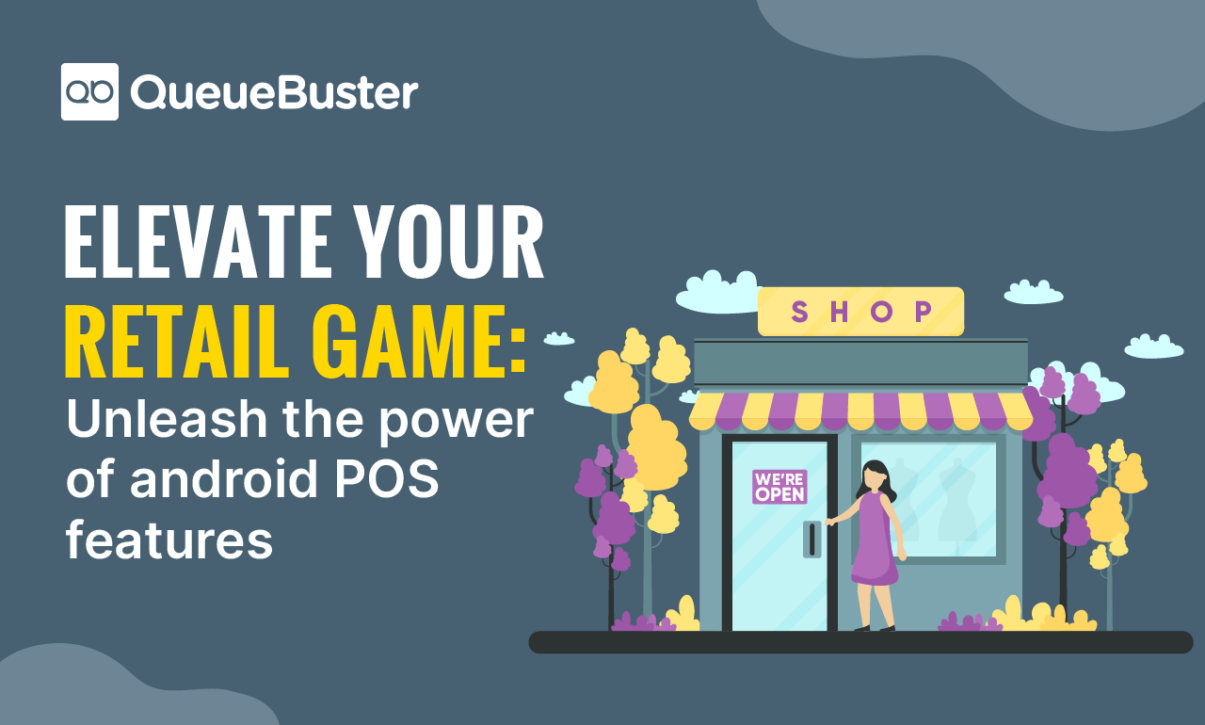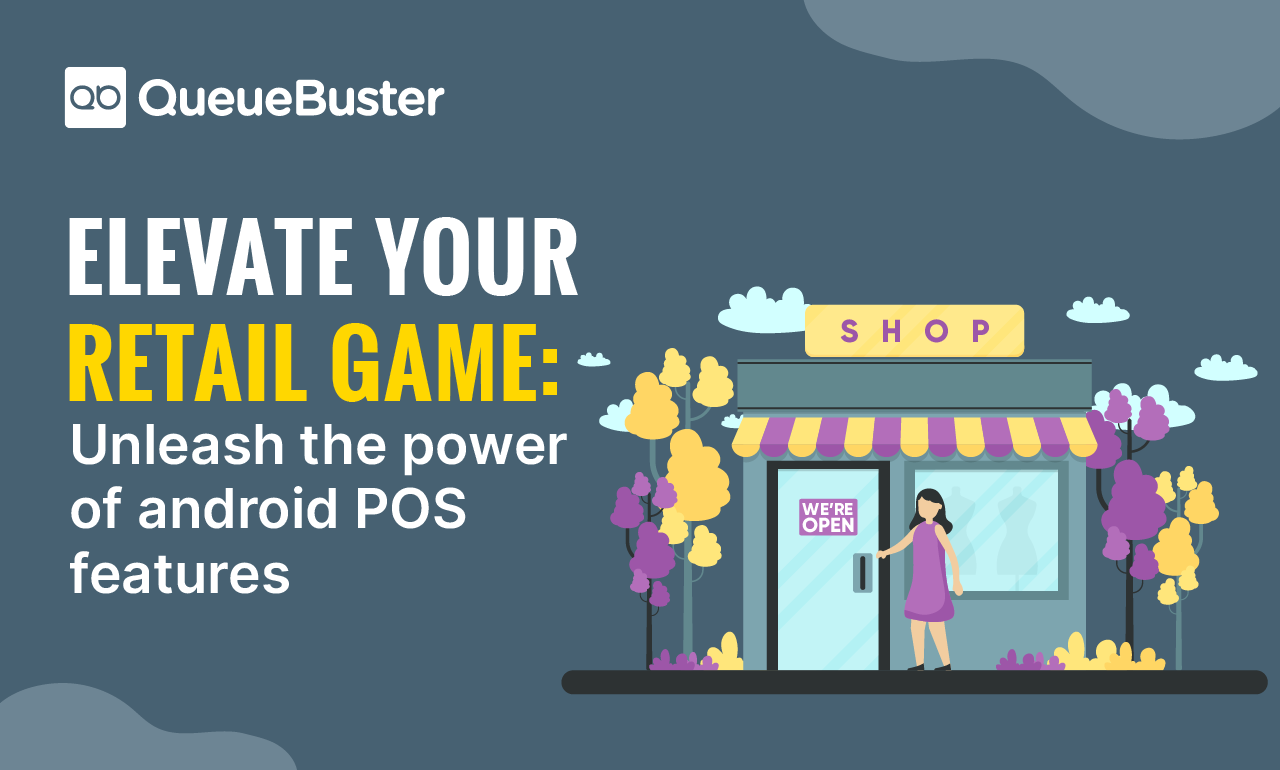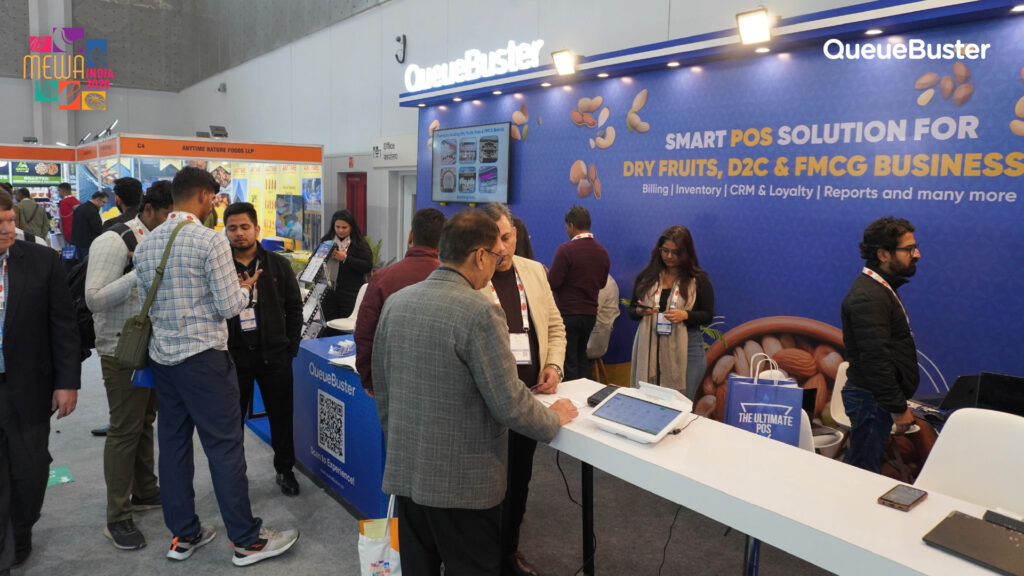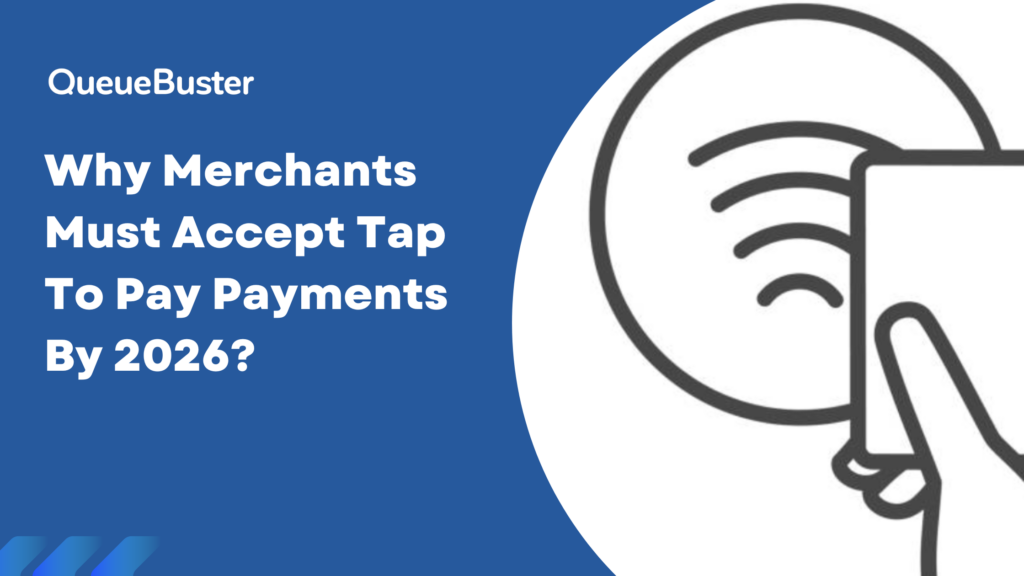
Retail POS: Take Your Business to the Next Level with These Android POS Features
Retail POS: Take Your Business to the Next Level with These Android POS Features

By QueueBuster Team Published: May 16th, 2024
A point-of-sale (POS) system is an essential tool for any retail business, as it helps efficiently manage sales, customer relationships, and inventory. With the rise of smartphones and tablets, many retailers are now opting for Android POS applications to run their businesses.
In this blog post, we will discuss the 7 must-have features of a retail Android POS application. These features will help you choose the best POS system for your business, ensuring that it meets your specific needs and helps boost your sales and profitability. So, without further ado, let’s dive into the top 7 features that every retail Android POS application should have.
What is Retail Android POS Application?
A retail Android POS (Point of Sale) application is a software program that runs on Android devices, such as tablets or smartphones, and is used to manage sales, customer relationships, and inventory in a retail business.
Retail Android POS applications provide a range of functionality that helps retailers streamline their operations and improve efficiency. Some of the key features of a retail Android POS application include the ability to process transactions, track and manage inventory, generate sales reports, and manage customer relationships.
Android POS applications are particularly useful for small businesses, as they provide a cost-effective and flexible solution for managing sales and operations. They can be easily customized to meet the specific needs of a business and can be accessed from any device with an internet connection.
Error: Contact form not found.
7 Must-Have Features of A Retail Android POS
- Inventory Management
A retail Android POS application should have the ability to track and manage inventory in real-time. This includes adding new products, updating stock levels, and generating reports on inventory status. It allows retailers to ensure they have the right products in stock to meet customer demand.
Some of the key features of inventory management in a retail Android POS application include:
Product catalog: A product catalog allows retailers to create a list of all the products they offer, including details such as product name, description, price, and stock levels.
Stock management: Retailers can use the POS system to track stock levels, set reorder alerts, and update stock levels as products are sold. This helps in ensuring that the business never runs out of stock.
Purchase orders: A retail Android POS application should allow retailers to create and manage purchase orders, making it easy to restock their inventory.
Inventory reports: A retail Android POS application should provide insights on inventory levels, popular products, and sales trends, helping retailers make informed business decisions.
- Acceptance Of Various Payment Methods
A retail Android POS application should support multiple payment options, such as debit/credit cards, mobile wallets, and cash. This helps provide a seamless payment experience to customers and helps in increasing sales.
- eStore
An e-store, or online store, is a website that allows retailers to sell their products and services online. It is a must-have for any retail POS system because it helps retailers reach a wider customer base and increase sales.
Here are some reasons why an e-store is a must-have for a retail POS system:
Reach a wider audience: An e-store allows retailers to reach a global audience rather than being limited to customers who can physically visit their store. This helps in increasing sales and growing the business.
Convenience for customers: An e-store allows customers to shop from the comfort of their own homes, at a time that is convenient for them. This helps provide a better shopping experience and can increase customer loyalty.
Increased sales: An e-store allows retailers to offer customers a wide range of products and services, which can lead to increased sales and revenue.
Easy to manage: An e-store can be easily managed through a retail POS system, allowing retailers to track orders, manage inventory, and process payments efficiently.
- CRM Solution
CRM, or customer relationship management, is a must-have feature for any retail POS android application. It allows retailers to manage customer relationships, track customer interactions, and stores customer information such as contact details, purchase history, and loyalty points. This enables brands to provide personalized experiences to customers.
Here are some reasons why CRM is a must-have for a retail POS android application:
Improved customer loyalty: CRM allows retailers to track customer interactions and purchases, providing insights into customer preferences and behaviour. It helps retailers in delivering personalized experiences to customers and build customer loyalty.
Increased sales: CRM helps retailers identify sales opportunities and upsell products to customers. This can lead to increased sales and revenue.
Better customer service: CRM allows retailers to track customer inquiries and complaints, providing insights on areas where the business can improve its customer service.
Streamlined operations: CRM helps retailers efficiently manage customer relationships and interactions, streamlining operations and improving efficiency.
- Cloud-based Dashboard
A cloud-based dashboard is a feature that allows retailers to track and monitor key sales and performance metrics easily. It provides real-time insights on sales trends, popular products, and customer behaviour, helping retailers make informed business decisions.
A dashboard for sales and reports in a retail POS android application typically includes the following features:
Sales data: This includes metrics such as total sales, sales by product or category, and sales by location.
Customer data: This includes metrics such as customer acquisition, retention, and loyalty.
Inventory data: This includes metrics such as stock levels, reorder alerts, and inventory turnover.
Employee data: This includes metrics such as employee performance, sales targets, and shift schedules.
Customizable reports: Retailers can customize the dashboard to display the most relevant data to their business, allowing them to make informed decisions.
- ERP Solution
ERP, or enterprise resource planning, is a business management software suite that helps organizations manage and automate various business processes, such as financial management, inventory management, and supply chain management.
Here are some ERP features that are included in a retail Android POS application:
Financial management: This includes features such as accounting, invoicing, and budgeting.
Inventory management: This includes features such as product catalogue management, stock management, and purchase orders.
Supply chain management: This includes features such as supplier management, logistics, and procurement.
Human resource management: This includes features such as employee tracking, payroll, and performance management.
Customer relationship management: This includes features such as customer database management, sales tracking, and customer service.
- Mobile Compatibility And Security
A retail Android POS application should be fully compatible with mobile devices, allowing sales to be processed on the go. This is particularly useful for small businesses that may not have a physical storefront. It should also have robust security measures to protect sensitive customer and business data. This includes measures such as encryption and secure login protocols.
Conclusion
In conclusion, a retail Android POS application is an essential tool for modern retail businesses. With the right features, it can streamline operations, increase productivity, and provide a better customer experience. By choosing an Android POS system with these seven must-have features, businesses can take their operations to the next level and achieve success in the fast-paced world of retail.
Check out India’s business POS app Queuebuster. It is a full-stack android POS application to manage your ledger, inventory, billing, CRM, online store, customers, loyalty & more. Schedule a demo.
Error: Contact form not found.
Popular Posts

MEWA India 2026: Showcasing QueueBuster POS to the Global Dry Fruits Industry
MEWA India 2026 was not just another industry event for us, it […]

Why Merchants Must Accept Tap to Pay Payments by 2026
The way customers pay has changed rapidly over the last few years […]